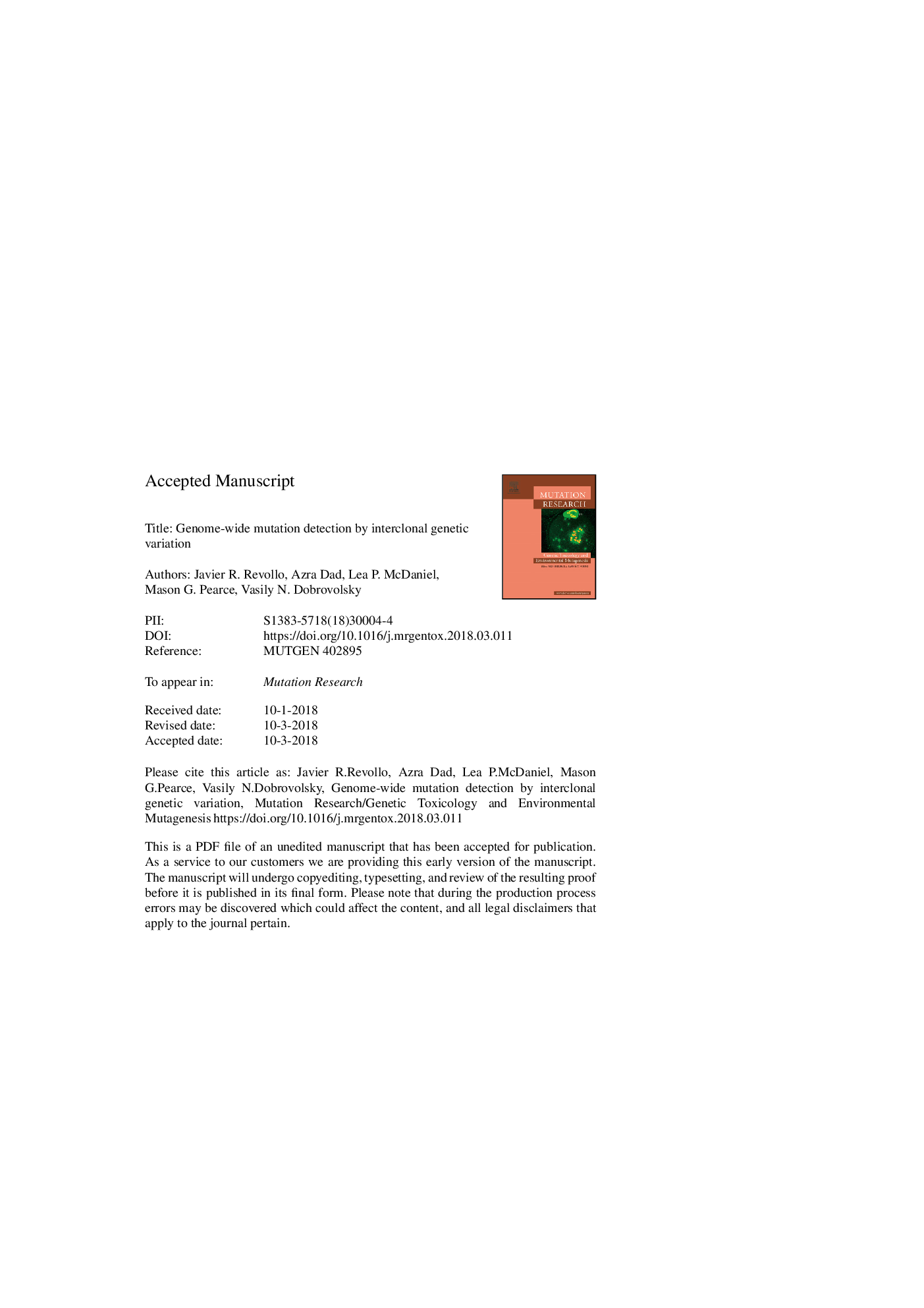| Article ID | Journal | Published Year | Pages | File Type |
|---|---|---|---|---|
| 8456204 | Mutation Research/Genetic Toxicology and Environmental Mutagenesis | 2018 | 28 Pages |
Abstract
Genetic toxicology assays estimate mutation frequencies by phenotypically screening for the activation or inactivation of endogenous or exogenous reporter genes. These reporters can only detect mutations in narrow areas of the genome and their use is often restricted to certain in vitro and in vivo models. Here, we show that Interclonal Genetic Variation (ICGV) can directly identify mutations genome-wide by comparing sequencing data of single-cell clones derived from the same source or organism. Upon ethyl methanesulfonate (EMS) exposure, ICGV detected greater levels of mutation in a dose- and time-dependent manner in E. coli. In addition, ICGV was also able to identify a â¼20-fold increase in somatic mutations in T-cell clones derived from an N-ethyl-N-nitrosourea (ENU)-treated rat vs. a vehicle-treated rat. These results demonstrate that the genetic differences of single-cell clones can be used for genome-wide mutation detection.
Related Topics
Life Sciences
Biochemistry, Genetics and Molecular Biology
Cancer Research
Authors
Javier R. Revollo, Azra Dad, Lea P. McDaniel, Mason G. Pearce, Vasily N. Dobrovolsky,
